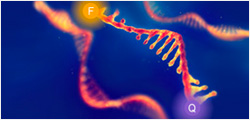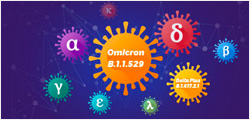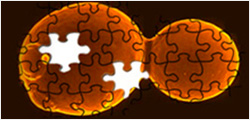MIC-B, Human
*This product has been discontinued!*
MIC-B (MHC class I chain-related gene B) is a transmembrane glycoprotein that functions as a ligand for human NKG2D. A closely related protein, MIC-A, shares 85% amino acid identity with MIC-B. These 2 proteins are distantly related to the MHC class I proteins. MIC-A and MIC-B (MIC-A/B) possess three extracellular immunoglobulin-like domains, but have no capacity to bind peptide or interact with β2-microglobulin. The genes encoding MIC-A/B are found within the major histocompatibility complex on human chromosome 6. The MIC-B locus is polymorphic with more than 15 recognized human alleles. MIC-A/B are minimally expressed on normal cells, but are frequently expressed on epithelial tumors and can be induced by bacterial and viral infections. MIC-A/B are ligands for NKG2D, an activating receptor expressed on NK cells, NKT cells, γδT cells, and CD8+ αβ T cells. Recognition of MIC-A/B by NKG2D results in the activation of cytolytic activity and/or cytokine production by these effector cells. MIC-A/B recognition is involved in tumor surveillance, viral infections, and autoimmune diseases. The release of soluble forms of MIC-A/B from tumors down-regulates NKG2D surface expression on effector cells resulting in the impairment of anti-tumor immune response.
| Z02801 | |
|
|
|
|
|
|
| Ask us a question | |








































